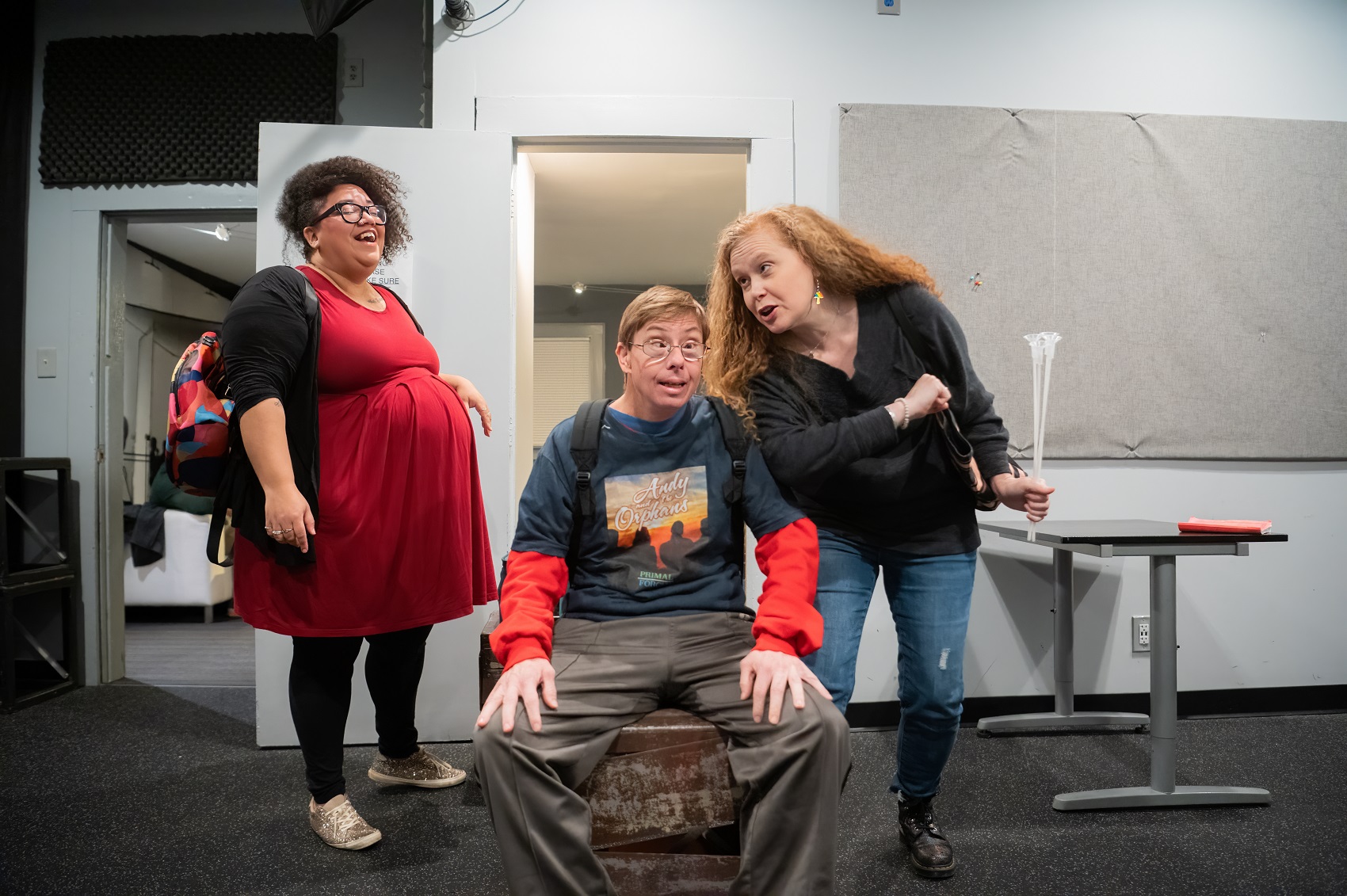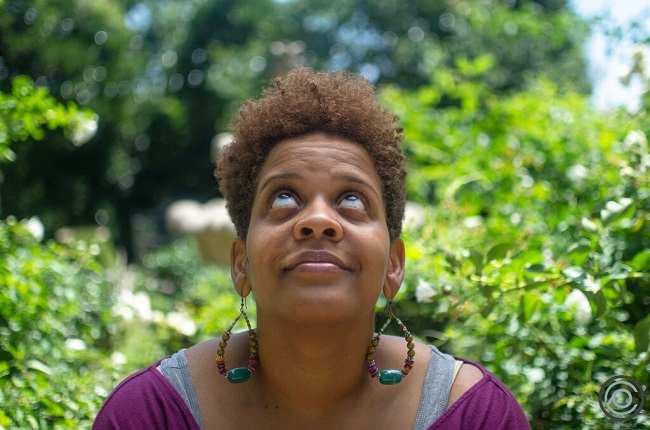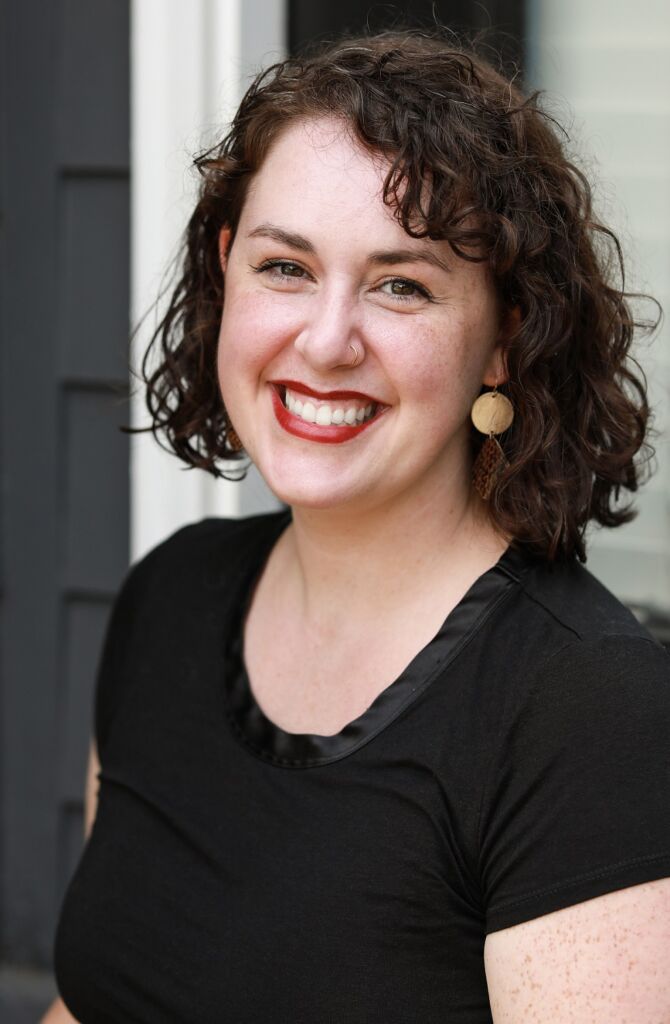'Brand New Start': Charlotte's Theater Scene is Infused with New Vision

By Virginia Brown
In spring of 2020, Zack Tarlton was busy preparing the entertainment for Theatre Charlotte’s annual fundraiser. “Then Covid hit, and everything stopped,” he said. The Covid-19 pandemic was in effect and, virtually overnight, the city’s theaters went dark.
About that same time, the Charlotte native, who’s been involved in local theater since childhood, got a call from a friend who asked if he was familiar with “Stars in the House.”
SiriusXM host Seth Rudetsky and his husband, producer James Wesley, founded the program, which streamed online living-room concerts that featured Broadway stars and casts.
Inspired by the model, Tarlton hosted his first from-home concert on March 27, 2020—with interviews theater leaders and performers in Charlotte and beyond—and QC Concerts was born.
“We were founded in the middle of the pandemic, which is a rare thing to be able to say,” Tarlton said. “It was an amazing start to keep theater going, and it brought me a lot of personal support. I think it filled a great art void for a lot of people.”
Covid, and the creative surge
Tarlton is just one of a whole host of creatives and organizations infusing Charlotte’s theater scene with new ventures.
“There’s a renaissance energy in Charlotte right now,” said Kelly Wright, a Queen City native who spent about a decade working in New York’s theater scene and recently returned to find her hometown thriving. “There’s an influx of new people, people who left and are coming back, or people who just got reinvested in art in general during Covid.”

In 2021, playwright Stacey Rose founded the Queen City New Play Initiative to support the development of new plays in the south.
“I’d been looking for something deeper in terms of investigating the work and making it stronger or making it clearer,” she said. “Having a community of folks—actors, dramaturgs, directors—really working together to help shape the piece into something deeper.”
For the 2021-22 season, the organization partnered with several local theater companies, each hosting a night of readings about the Charlotte experience. They held cold readings at Archive CLT, Hygge, and Pauline’s Tea Bar. Last June, the new play festival commissioned three plays about marginalized experiences in North Carolina.
Proxymoron Productions, a company founded by Kacy Connon, grew out of Covid.
In 2022, Chris Stonnell, a Charlotte-area native with deep experience in theater and the arts, launched Post Mortem Players, inspired by the Grand-Guignol Theater in Paris, which specializes in horror and theater of the macabre.
“There’s this huge surge of new talent and new energy coming into this community,” said Wright. “It’s a really cool time to be involved. It feels like a brand-new start.”
A legacy of new beginnings
But starting a creative venture is one thing; keeping it going is another.
Actor’s Theater of Charlotte called several different locations home since its inception in 1989, before permanently closing last fall, a harsh blow and still-fresh wound for local theater lovers. The company publicly cited disappointing ticket sales and the lasting effects of the pandemic as reasons for the closure.
Award-winning Carolina Actors Studio Theatre closed its doors in 2014 after nearly a quarter-century of high-quality, often edgy performances.
“Theater is a really expensive art form,” said Stonnell. Covering costs for talent, rentals, costumes, lighting, marketing, and rights to content all add up. Not to mention space—available and affordable performance venues continues to be a concern.

Robin Tynes-Miller co-founded Three Bone Theatre in 2012. Beginning with small productions at UpStage, a bar and performance space above Salud in NoDa, the company grew. When the bar closed, it was able to move to performances at Duke Energy Theater, which has been closed since the pandemic. Currently, the company performs at the Arts Factory at West End Studios.
Overcoming challenges
Charlotte’s theater ecosystem is missing some key elements for a city of its size, said Tynes-Miller.
“Where’s the incubator space? What companies are we missing out on because there’s not a space for people to start in?” she asked. “What do these companies need to be able to grow? That scaffolding is also really not in existence right now.”
In addition to space and funding challenges, the theater ecosystem is also off balance, according to many in the industry today.
Blumenthal Performing Arts is a leader in the theater space and brings touring Broadway shows to Charlotte, like this fall, when “Chicago” and “Jesus Christ Superstar” come to town.
Several community companies, like Matthews Playhouse and Theatre Charlotte, have brought high-quality performances to Charlotte-area audiences for decades.
The middle ground, though—the professional-pay local theater that attracts and retains major talent—hasn’t had firm historical legs. “We need an equitable, affordable, and balanced ecosystem, and right now we’re missing a piece,” said Stonnell.
Children’s Theatre of Charlotte, a longstanding and beloved institution, offers equity pay, or actor compensation that follows the rates and working conditions outlined by Actor’s Equity Association.
“They hire equity actors all the time and are definitely a constant, and an example for theater companies here,” said local performer and facilitator Juanita Green, who recently performed in “I am Queen: Charlotte” with Epoch Tribe.
That’s an important piece. It’s also “critical that we have thriving theater companies at every level that are able to pay artists sustainably,” said Tynes-Miller.
Looking to fill a void, Charlotte Conservatory Theatre – founded by Marla Brown, who ran Warehouse Performing Arts Center in Cornelius for 10 years, and North Carolina native Stephen Kaliski – debuted last summer with Jen Silverman’s “Witch” at Booth Playhouse.
“They can be, and I think are on their way to being, that middle ground,” said Green. “They just did ‘POTUS,’ a show that just got off of Broadway. And they were the first theater company to snag it, which is a big deal.”
Despite the challenges, Green—who has a broad perspective, having lived in Atlanta, New York, and Charleston, before moving to Charlotte—thinks how it’s shaping up is exciting.
“In Chicago, people talk about it being ‘fringe.’ New York is largely known for Broadway and Off Broadway. California is mostly film and television, and Florida is known for Disney and large entertainment,” she said. “Here, it’s not fully established yet, so there are so many options.”
This summer, she headed to Canada with funding from to train under a Theatre for the Oppressed-certified company. She plans to use that training in Charlotte to facilitate shows that help tackle issues of economic inequality, racism and other injustices.
Since fiscal year 2021, ASC has invested more than $350,000 in Charlotte-Mecklenburg theatre organizations and theatre professionals through its Cultural Vision Grant, Artist Support Grant, Creative Renewal Fellowship, Emerging Creators Fellowship and Founders Grants programs.
“There’s always talk about space and funding and no appreciation for theater, but being here since 2015, I’ve seen the evolution, and I feel like it’s happening,” said Green. “When I moved here, I was excited about doing theater, because I could see the potential, that it’s growing from the ground up. I want to be a part of that.”
As for QC Concerts, the company continues to gain momentum and grow. Last year, it presented “Titanic” with a 22-piece orchestra. Now in its third season, it has presented several shows at partner venue Free Will Craft + Vine and plans to close the season in November with “Sunset Boulevard” at Booth Playhouse.
Tartlon said at least half of QC Concerts operating budget is based on ticket sales. “We have a fiscal sponsor, we’ve applied for some grant funding, and individual donors and sponsors that help get us where we need to go,” Tarlton said.
The company also received its official nonprofit status in May, which he said will help with fundraising efforts.
“I will always believe that Charlotte is a place where you can make things happen,” said Tarlton. “It’s the dreamer in me. But a lot of things are really great for a season, and just a trend that goes away. Theater is not a trend; it’s not going to disappear tomorrow. So how do we build that sustainability?”

